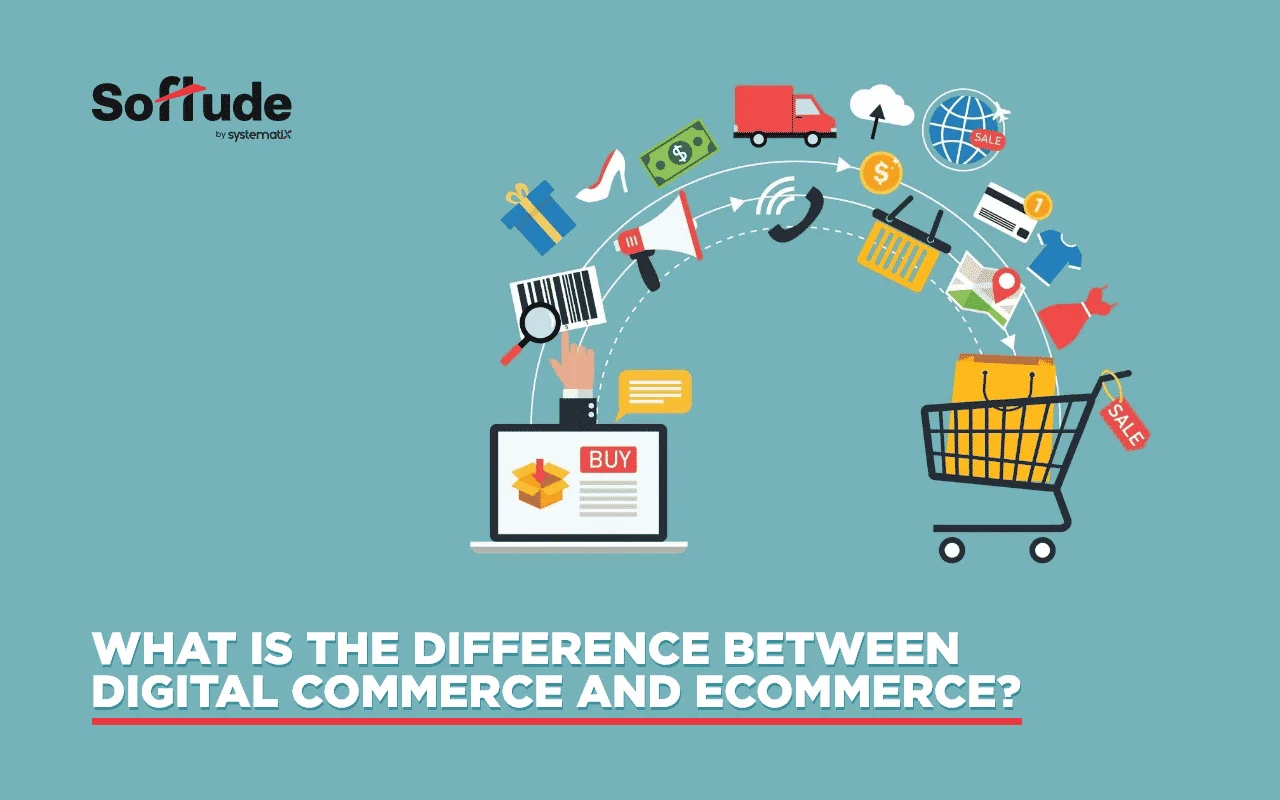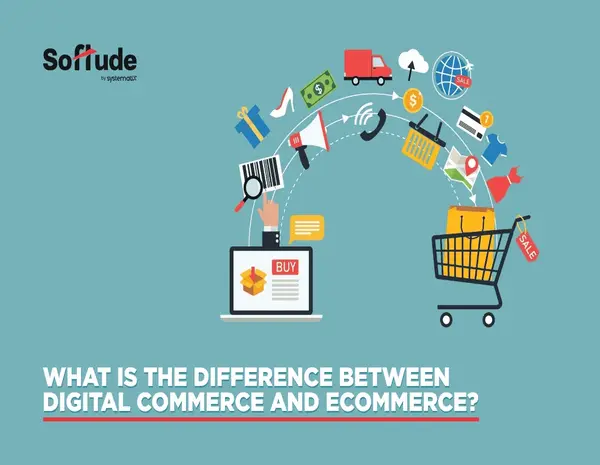With the evolution of digital technology consumers around the world who earlier used to purchase products offline from the physical stores (as this was the only means before the introduction of eCommerce) started trying to meet their shopping needs online. As the customers get more inclined toward online shopping, businesses also tried utilizing this digitization and started launching websites to sell their products online. This complete system of buying and selling online worked very well for sellers as well as consumers. Now, such a time has come that the eCommerce industry has an abundance of brands as well as retailers selling the same line of products and trying to get recognized by the customers.

This abundance has given rise to tremendous competition and hence it has become quite complex for online retailers to get recognized by the customers and win their trust. In such a competition, it is not sufficient for businesses to just get an eCommerce website launched and claim it as their strategy for digital commerce. One has to put tremendous efforts into framing exceptional digital strategies to survive and beat this competitive market.
Being an online retailer you will be well aware of the demands of your online customer base. Customers nowadays want the way they find most convenient for having exceptional online shopping experiences. They want to get engaged with the businesses. No matter how many effective products you have to offer them unless they find engagement and a personal connection with your brand, you won’t be able to make them spend even a penny on your products. They want to pay for what is best suited for them and where they get an uncompromising experience from the initial process of online surfing to the final process of successful delivery.
This means it is not easy to meet the expectations of modern customers and therefore simply initiating an eCommerce business by just setting up online sale facilities is not the only thing you should do. Businesses across the world have started understanding these things and therefore began investing exceptionally in digital commerce. Before we go deeper into a digital commerce strategy, it is important to understand the term digital commerce and how it is different from eCommerce.
What is eCommerce?
eCommerce or electronic commerce is the term used for the online purchase or sale of products or Digital Commerce Services which involve carrying out an online transaction over the web. The transactions carried out in eCommerce involve the transfer of funds, money, information, etc. over the web. These processes are carried out by meeting certain technological requirements such as mobile commerce, electronic fund transfer, supply chain management, internet marketing, EDI, online transaction processing, and much more.
Generally, eCommerce is the term used for the purchase or sale of physical or tangible products online, however, any kind of online transactions carried out for commercial purposes fall under eCommerce. The transactions are usually completed in 4 ways which are:
1. B2C (Business to Customer)
2. B2B (Business to Business)
3. C2B (Customer to Business)
4. C2C (Customer to Customer)
The various online portals such as Flipkart, Amazon, eBay, Myntra, etc. are examples of eCommerce platforms. Wholesale, retail, crowdfunding, subscription, and dropshipping are the different varieties of eCommerce.
What is Digital Commerce?
Above we discussed eCommerce which is a kind of functional aspect of online business but when we talk about digital commerce, it is a sort of culture. It is a discipline that involves processes, technology, and people working together to take eCommerce to a new higher level. Digital commerce involves providing exceptional user experience to customers, along with managing content, design features of websites, digital commerce analytics, user engagement, and much more. Digital commerce is focused more on customers as eCommerce can be a success only if the customer base is happy with the digital experience provided on the platform along with the quality of products/services offered.
Digital commerce is a well-framed strategy that lets customers get engaged with the website and get prompted to buy products and services online which ultimately enhances the growth of eCommerce. Digital commerce focuses on offering an uncompromising experience when they come across eCommerce platforms which enhance brand value in the eyes of customers and they get encouraged to make purchases.
Difference Between eCommerce and Digital Commerce
The basic difference between eCommerce and digital commerce is that eCommerce generally focuses around buying and selling products and carrying out transactions. This involves supply chain management, online transaction processing, shipping management, physical product inventory management, online product listing management, managing online websites for the products, etc. It means everything related to the management and sale of online products comes under eCommerce.
For the success of the business, setting up such an eCommerce is not the only thing one is required to do but to let this eCommerce get started, it is important for a business to reach out to the customers. This reach is ensured by digital commerce. Not only reach but an effective reach that has the capability to drive customers to the eCommerce store is referred to as digital commerce.
If eCommerce is about selling products online, digital commerce is about offering engaging experiences to the users so that they can have their interest induced to buy products. So, eCommerce and digital commerce are two different things each having different approaches and functions.
What’s the Need for Digital Commerce?
As discussed earlier, today’s online market has become full of competition which makes it difficult for businesses to survive by focusing on just traditional approaches of eCommerce. There is a need for much more effort than just putting an online store on the web. These additional efforts are taken into consideration under digital commerce. Customers nowadays are unpredictable, as their demands and expectations have grown big with the increase in the number of product service providers. Product quality is one thing but there is much more expected beyond this by the customers. They want to be treated or serviced keeping their individual requirements and preferences sorted.
To achieve these expectations of customers digital commerce aims at creating a digital experience design that can attract consumers and also make sure they are retained. For example, nowadays various eCommerce mobile apps such as Myntra, Amazon, etc. demand personal data from the customers at the beginning such as their age, height, weight, gender, and more priorities so that they can suggest suitable products to the customers as per their chart. These kinds of strategies come under digital commerce as they involve offering a personalized experience to the customers which is of course loved by the users.
Moreover, the unpredictability of the customers has gone to such a level that you can not imagine what they are using to carry out their product search. Online portals are now available on various gadgets that support online shopping in a convenient way. These gadgets include mobile devices, laptops, tablets, etc. So it has become important to make your eCommerce available on all these devices so that customers do have not to look for an alternative website. The process of optimizing eCommerce websites for all devices is one of the major digital commerce strategies. In addition to these, it is also important to stay tuned with the latest technological adaptations such as voice search, verbal commands, etc. for enjoying competitive advantages.
Factors Considered in Digital Commerce for Outstanding Customer Experience
Digital commerce is the process of innovating and enhancing your eCommerce by focusing more on offering an outstanding online shopping experience to customers. It aims to produce such an online experience that is expected and required by your target audience. Once you can understand what they want, you can frame a digital commerce strategy for effectively incorporating innovative changes to your website. The factors that are generally considered in this whole process are discussed below:
Intuitive and Interactive Web Design
Digital commerce involves the digital platform evaluation process to make sure that a website has design aspects created in such a way that grabs the attention of the customers. The digital commerce strategy focuses on planning or restructuring the design of the eCommerce platform to make it easily accessible to the users.
Website design is the first and foremost thing that has great importance in offering users the first impression of your brand. Leaving the thought of making any purchase, if a random visitor lands on your website and finds your website designed amazingly which is simple to surf Furthermore, he/she may want to spend more time exploring what you have to offer. So, you see the website design is a factor that has the power to make a customer stay on your portal for a while. Along with maintaining the design aspects of the website attractive it is also equally important to keep it in such a way that all of its features can be accessed by the users conveniently.
Use of Relevant and Quality Graphics and Images
Another important aspect that is taken into consideration by digital commerce is the usage of relevant and exceptional quality images and graphics. Graphics and images are the most important things for eCommerce as of course customers don’t want to spend their money on products that don’t look attractive or have realistic images of theirs on your portal. For this, it is important to make sure that every single product made available for sale on your eCommerce platform has realistic and good quality images uploaded along with self-sufficient descriptions that can offer complete product information provided in advance.
By taking these factors into consideration, digital commerce ensures backup eCommerce so that it can have some credibility, reputation, and trust in the eyes of customers.
Fast Website Loading Speed
Loading time taken by the website is one of the major considerations in meeting all the digital commerce objectives. As you cannot claim to offer a good customer experience unless your eCommerce portal has a good enough loading speed.
Consider yourself as a visitor and imagine that your website is taking too long, probably a few minutes to get loaded. This will help you understand the level of frustration that a visitor can have. This is one of the greatest disappointing experiences an eCommerce website can offer to its customers. So, a good digital commerce strategy focuses on resolving the website loading speed issues by finding out various solutions. A good eCommerce loading speed is not more than 5 seconds as customers can only give you this much time otherwise they will jump to other alternative platforms. The website loading speed can be optimized by reducing the size of heavy images without losing the quality, optimizing JavaScript code, and more.
Responsive Design for a Consistent Experience
Another big challenge that comes across digital commerce is maintaining the consistency of the eCommerce website throughout all the gadgets or devices. As customers nowadays use multiple kinds of devices for online shopping. So, it has become quite important to ensure that your digital platform is offering the same level of experience throughout all the devices such as mobiles, laptops, tablets, etc.
The number of mobile users nowadays is more than anything as they look for the most convenient way of shopping these days which is provided by smartphones. It is crucial to ensure the responsive design of your eCommerce website so that mobile users can have fluent access to all the features of the website without any inconvenience.
Active Participation in Social Media Channels
Digital commerce is just not limited to the design elements of the website rather it is up to the level where there is a scope of attaining higher visibility for the brand. Social media is a facet of digital commerce that cannot be ignored in any way especially when you are in an eCommerce business. Social sharing is as important as maintaining your eCommerce portal on a regular basis. The majority of the population across the world is active on social media channels such as Facebook, Instagram, Twitter, and many more and therefore there is a great scope for grabbing the attention of your target audience towards your eCommerce website.
Make sure you are keeping your business social channels updated and posted on a daily basis. Keep sharing your newly launched products along with offers, coupons, and deals to stay prominent in front of your customer base. Also, the tone and consistency of your posts should be in a way that can engage customers as they may not feel they are being sold something rather they should feel you have something special for them.
Content on Website
The content of your eCommerce website is as important as that of your design. So, digital commerce involves figuring out whether your website content is capable of engaging the audience effectively. Adding content for just SEO purposes and optimizing it with keywords should not be the only aim, rather the content should offer genuine information to the customers in a tone that is simple, yet engaging.
Moreover, having a blog integrated into the website is an essential part. A blog should offer weekly or biweekly or whichever suitable posts focused around helping your audience get the information they are seeking for. You can take advantage of various tools such as Google Trends etc. to explore trending topics that people are in search of and create content focused to address those topics. A bigger advantage of this is that your audience will not see you as just an eCommerce business that is intended to sell things but will see you as a genuine helper that aims to help them out with informative content.
Email Marketing Campaigns
Another advantageous area of digital commerce that has the capability to build a strong customer base for an eCommerce business is email marketing campaigns. Based on the target audience details grabbed from various social media channels, digital commerce strategies focus on reaching out to them by means of sending business emails related to the latest launches, updates, offers, newsletters, deals, and much more. This strategy is effective to a great extent in not only grabbing the attention of the general public but also enhancing the brand credibility. As your audience will be able to understand that you genuinely want them to enjoy wonderful offers.
Choosing the Right Platform for eCommerce
Digital commerce also involves assessing whether the platform chosen for the eCommerce platform is worth investing in. As a platform has a great role in deciding the experience your target audience will be getting. The features and functionalities are dependent on the platform so, it is crucial to choose the platform that is capable enough to work in accordance with users’ demands. If not, it is better to switch to a friendlier platform by getting help from professional platform migration consulting services.
Conclusion
So, this has brought in an extensive comparative dialog between eCommerce and digital commerce along with exploring the importance of digital commerce for a successful eCommerce venture. Besides, everything that goes on to elaborate and classify the two practices based on their approaches and functions and their significance you can easily assume that eCommerce as a solution cannot be imagined without the adequate support of digital commerce nowadays.






